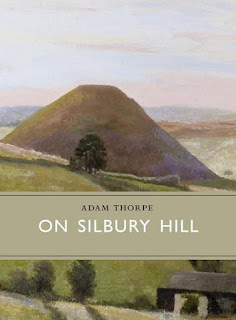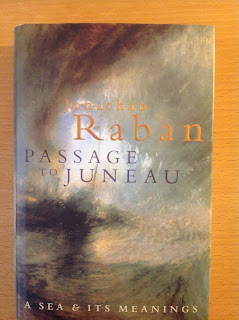In a bid to find quick relaxation from two busy jobs we have been to Malta/Gozo a lot over the last twenty years. It didn't have to be there but it became somewhere we knew. We didn't have to work too hard to chill, if you understand me. Since we retired, holiday is probably better described simply as time away.
Which also means that time away doesn't have to be relaxing any more. We both love reading books outdoors near water so that wasn't likely to be abandoned. And we like the warmth of the sun. But a little exploring might be OK, mightn't it?
Many people had spoken highly of Madeira over the years so we decided to check it out for ourselves and have just returned from a very pleasant visit.
 |
| Picture 1: tunnels and flyovers |
Some amazing engineering projects have made the journey from the airport to the major city, Funchal, just 30 minutes. See first image.
It's a tough job to find a bad meal in Madeira. The ones included as part of day trips are a bit ordinary but otherwise all was good. Most little restaurants do good things with fish, especially the scabbard fish (dorada) although they serve it with banana if you don't look out. A trip to the Funchal fish market (commended) early doors will show you how ugly the sea things that taste lovely are.
One little sea front restaurant was a decent walk along the coast for us but we did it twice. Doca do Cavacos at Sao Martinho was our favourite place. Grilled squid, sardines and tuna were delicious. Or you can risk grilled catch of the day on a skewer. Probably not worth asking for a dessert anywhere. They aren't good at them and are liberal with cheap chocolate sauce which devastated an almost pleasant tiramisu. Have a starter and you'll not need a pudding. Cheap café pizza and beer is easy and the local bread (bolo do caco) is good (watch out for garlic and spring onions you didn't order). If asked whether you want bread in a restaurant you are agreeing to pay for it when you say yes. It is rarely complimentary. Likewise water.
If you want a Michelin standard meal then book well before you set off. All were full. We didn't go to the famous old colonial establishments but the buzz was that they had lost their way a bit. Lá Ao Fundo in Funchal is a Mozambique/Portuguese fusion restaurant (we were told) which they achieved by offering some dishes from each country. Not that fused and a bit average, apart from the desserts which were actually great. My crème brûlée was blowtorched at the table, smoking out the neighbours.
 |
| Picture 2: maturing Madeira wine |
There are a couple of good wineries where you can be guided through the fortified process to produce Madeira. We went to Blandy's in Funchal where the smell of 700,000 litres of maturing wine was overwhelming (image 2). I'm out of picture in the corner, smelling the pillars soaked with wine vapour for 200 years. Blandy's Madeira is available at Waitrose.
Sugar cane juice rum is distilled on the island. I enjoyed a tasting very much and had a snooze on the journey back while my passengers screamed in terror (© Bob Monkhouse).
 |
| Picture 3: sculpture |
There are many nice gardens. The one at
Monte, accessed best by cable car from Funchal, is good. It currently includes an exhibition of Zimbabwean and Malawian sculpture (image 3). The Madeira National Botanical Gardens is better known but there are several better gardens in the UK, just not so far up a mountain. Best bits were the view points. We took a taxi up (Є12) and walked back down which made our calf muscles ready for lunch.
Maderia is hugely popular with walkers. Levadas are human-made water channels for irrigation. We did one short walk to a terrifying view/drop. The paths are alongside the water ditches. Farmers pay for the water by the hour and sluice gates are opened to release the mountain stream water. Vines, sugar, bananas and other crops are grown on flattened terraces
on the south facing hills.
Picture 4: dockside art
At the top of one of the highest points, accessible by car, we were 'entertained' by Peruvian panpipers. The view was better than the vibe. Quiet would have been best.
A stroll round Funchal involves dodging the bar and café owners who want your custom. It is a buzzy cosmopolitan place. There is great street art on the doorways in east town but many of these become restaurants and the art vanishes behind the open doors. Visit early or late to enjoy. The dockside has a mural dedicated to every boat that has moored up (image 4).
Churches and cathedrals are ornate, colourful and often surrounded by beggars. The Jesuit church in Funchal is exceptionally fine. Nearby is a Museum of Sacred Art but we've seen a lot of that so we avoided. The next door café is cracking and does craft ale.
The Museum of Modern Art (MAMMA) to the west of Funchal has a massive 14 room installation on the theme of life's journey. 300 plus pieces are crammed together leaving the thought of whether we find life so over-stimulating we miss the big questions. Є10 for a provocative hour or so.
We were there a fortnight and had a great time. There were enough things we didn't do to want to revisit. I also read seven books.













 It's hard to be fully prepared for the east-meets-west experience of Japan. You can read about it but it's so much more.
It's hard to be fully prepared for the east-meets-west experience of Japan. You can read about it but it's so much more.

 waiting at a station 250 miles down the track for 12 minutes while the slightly slower train we should have boarded caught up with us. Two trains going one 400 mile journey at slightly different paces leaving within three minutes of each other. Both pretty full. Journey time, including change, was 2 hours 45 minutes. Brilliant.
waiting at a station 250 miles down the track for 12 minutes while the slightly slower train we should have boarded caught up with us. Two trains going one 400 mile journey at slightly different paces leaving within three minutes of each other. Both pretty full. Journey time, including change, was 2 hours 45 minutes. Brilliant.



 That said, bean curd did provide us with the one 'won't swallow' moment of our holiday, although we did taste.
That said, bean curd did provide us with the one 'won't swallow' moment of our holiday, although we did taste.




